Struck down by a medical issue, I was forced to develop techniques to get me through isolation, says Michelle Langer
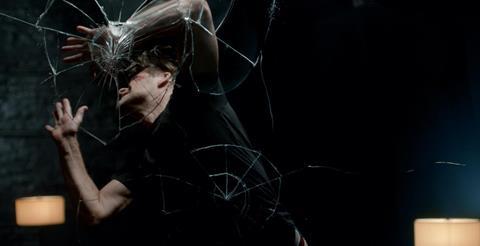
Whilst these are unprecedented times, for me lockdown life is a déjà vu from 2008 when I was forced to spend nine months at home lying down, unable to sit or stand for longer than 30 seconds.
I was struck down by this condition when I was creative director of Peter Jones’ company PJTV and just six months after I’d got married.
This wasn’t my vision for wedded bliss, but I developed survival techniques I’d like to share as I’m now quite sure that my isolation experience was when of the best things that ever happened in my life.
Ironically it all started with a virus. It developed with flu-like symptoms but when I was exposed to daylight it felt like a bullet in my brain, so the doctor suspected meningitis.
The only way to confirm this diagnosis was through a lumbar puncture – an injection in your spine where they take fluid to be tested. The results were negative but I became a medical anomaly, as the hole that was punctured in my spine wouldn’t heal.
This meant that whenever I tried to sit or stand, spinal fluid leaked, giving me instant nausea, a splitting headache and blurred vision. I had every scan, procedure and drug in the book, but I wasn’t getting any better.
Without a definite prognosis the doctors told me I would probably get better in time, but it could take years. Therefore, I was limited to a life at home lying on the sofa. It was actually much more restrictive and painful than daily life now but I adapted by developing survival tips that kept me going and I hope can help you.
Routine
No surprise that this helps our mental health – it makes us feel more in control of our lives and destiny.
The producer in me had to create a daily production schedule. In my constrained existence, this consisted of things like making photo albums, organising computer files and trying new recipes but having an hour by hour breakdown and sticking to it kept me sane.
Get creative
During my lockdown I wrote a book about my experience as a reality TV producer called Reality Chick. A publisher was interested but I decided it would be too incriminating and didn’t do anything with it, but it was incredibly satisfying to write a few thousand words a day and gave me a sense of purpose.
What is the format in the back of your mind that you’ve never had time to develop or the creative project on your bucket list?
Even if you’re working full time at home, potentially also juggling that with kids, how about the hour or two that used to be your commute time?
Could that be time that you could now dedicate to developing that potential hit or a passion project – something just for you?
Meditate
When I was ill, I already had a practice of many years and it was a total lifesaver. It kept me calm, focused and helped to disconnect me from my ailing body.
Most relevant for now, the plethora of scientifically proven benefits of practicing meditation include boosting immunity and reducing inflammation.
Practicing mindfulness is a path to bring you into the present moment, which can help to reduce the anticipatory fear that so many of us are facing right now that research has noted is comparable to grief.
The simplest way to do this is to take what I call a ‘Next Step Breathing Space’. Follow my guided version here I’m posting five minutes of viral mindfulness to Instagram every day, to help people throughout this period of lockdown.
Dress for success
It was very tempting to stay in my PJs for months, but I knew I would feel more like an invalid and lacking in energy if I didn’t dress for the outside world.
Right now, I’m coaching people at home in their leisure wear and encouraging them to dress for the office.
Currently my TV clients fall into two categories. The first are spending their days on back to back zoom calls, trying to save their companies and deciding between pursuing miniscule budget commissions or furloughing more staff.
The second group are unemployed, seeking financial and mental coping techniques. Whichever category, dressing for success helps to switch you into work mode, even when your office is your kitchen.
Institutionalisation is not so bad
If you’ve ever wondered how prisoners endure a long stretch, or how long-term hospitalised patients don’t seem bored, it’s because we quickly adapt to new environments.
When I was first ill, FOMO – fear of missing out – was dominant. I felt sad about losing my work, missing friends, social events and being disconnected from everyday life, but that changed.
I became accustomed to a simpler existence at home and took comfort from smaller pleasures. Amid these frightening times, there is an opportunity for us to reset, to recalibrate what’s really important.
I was fortunate that nine months after I became ill I could re-join the world fully recovered.
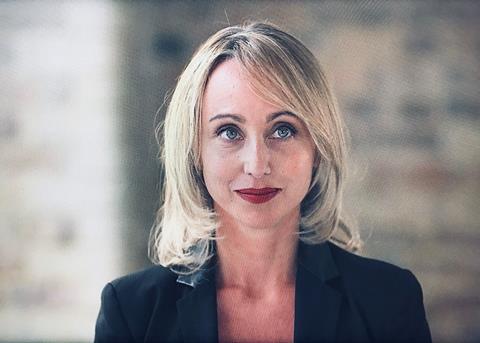
I went back into production but the experience made me decide that one day teaching wellbeing would become more central in my life – at that time I taught meditation on the side, and mainly to industry colleagues who needed survival techniques.
I will never forget the new appreciation I had for everyday life and hope that when this time passes, we can all collectively feel that euphoria. In the meantime it’s worth uncovering the small pleasures of the now.
- Michelle Langer is an executive producer, executive coach and certified wellbeing instructor. She is conducting a free webinar for freelancers tomorrow (Thursday 9 April) at 11am as part of the TV Mindset/ScreenSkills wellness week, focusing on practical solutions for diffusing stress. Click here to join








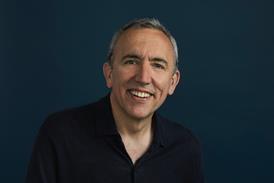











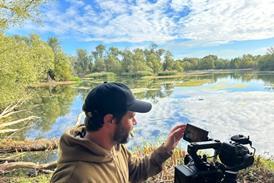
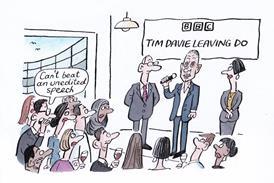







No comments yet